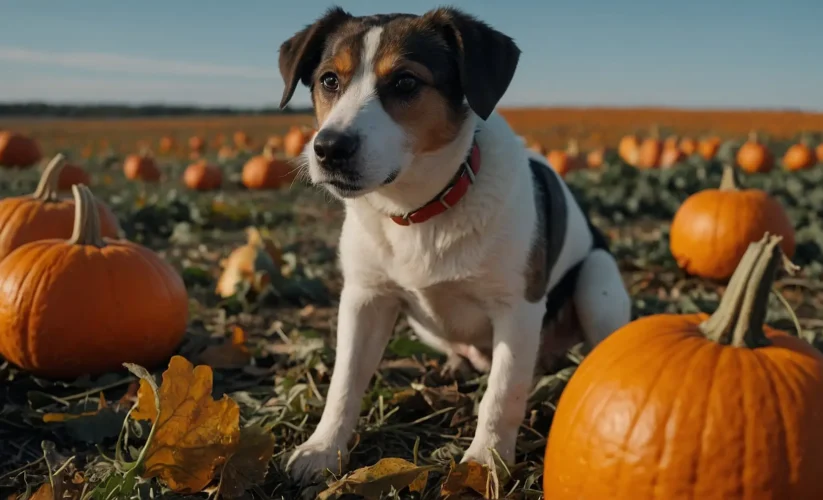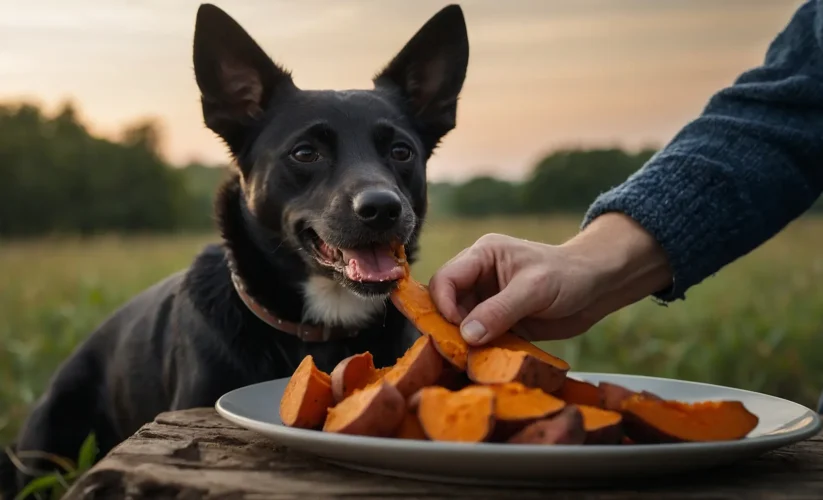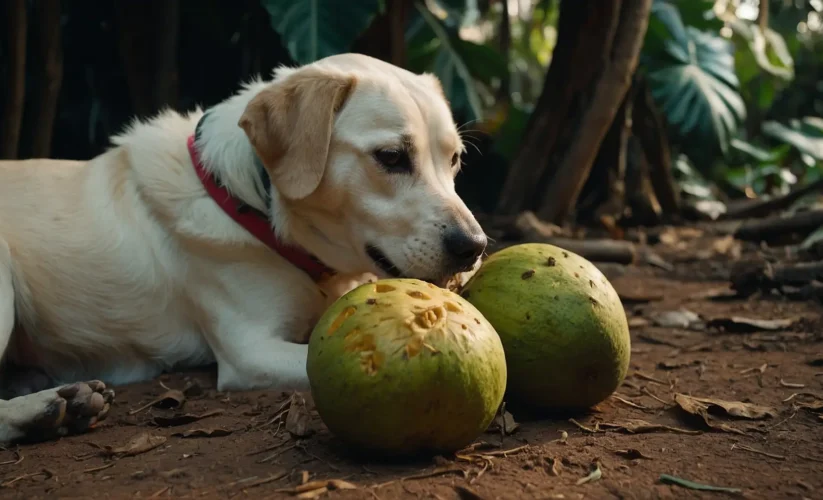Can dogs eat Pumpkin?

As a devoted dog owner and seasoned blogger, I’ve encountered numerous questions regarding the safety and benefits of various foods for our furry friends. One common query is, “Can dogs eat pumpkin?” Given the abundance of misinformation and the critical importance of our dogs’ health, I feel compelled to delve into this topic thoroughly. Pumpkins, with their rich history and presence in human diets, also spark curiosity in the realm of pet nutrition. This article aims to provide a comprehensive exploration of the relationship between dogs and pumpkin, addressing its benefits, potential risks, and comparing it with other vegetables commonly found in our kitchens. Join me as we navigate through the nuances of canine nutrition, ensuring we make informed decisions for the wellbeing of our beloved pets.
Is Pumpkin Good for Dogs?
Pumpkin is more than just a seasonal decoration; it’s a powerhouse of nutrients beneficial not only to humans but also to our canine companions. Packed with essential vitamins and minerals, such as vitamin A, C, and E, as well as potassium and fiber, pumpkin offers a multitude of health advantages for dogs. Firstly, the high fiber content in pumpkin aids in digestion, helping to alleviate constipation and diarrhea. This makes it an excellent dietary addition for dogs with sensitive stomachs or irregular bowel movements.
Moreover, pumpkin’s low calorie count, coupled with its high nutritional value, makes it an ideal treat for overweight dogs. Its fiber richness promotes a feeling of fullness, helping to control a dog’s appetite and aid in weight management. Additionally, the antioxidants present in pumpkin, such as beta-carotene, play a crucial role in maintaining a healthy immune system, potentially reducing the risk of chronic diseases.
However, it’s important to serve pumpkin to dogs in moderation and in its pure form. Canned pumpkin is a convenient option, but it’s essential to choose varieties without added sugars or spices, which can be harmful to dogs. Fresh pumpkin, cooked without any additives, is always the best choice to reap the full health benefits.
Is Pumpkin Bad for Dogs?
While pumpkin is largely beneficial for dogs, there are scenarios where it could pose risks when considering “can dogs eat pumpkin?”. The key to safely incorporating pumpkin into your dog’s diet lies in moderation and preparation. Excessive consumption of pumpkin can lead to nutritional imbalances, particularly if it displaces a significant portion of their regular diet. Dogs require a well-rounded diet tailored to their specific needs, and overreliance on any single food item, including pumpkin, can disrupt this balance.

Another concern is the form in which pumpkin is served. Pumpkin pie filling, for instance, contains sugars and spices that are not suitable for dogs and can lead to gastrointestinal upset or more severe health issues. Similarly, the hard skin of raw pumpkin and the seeds, although not toxic, can be difficult for dogs to digest and potentially cause intestinal blockages.
Therefore, when introducing pumpkin or any new food into your dog’s diet, it’s crucial to do so gradually and observe for any adverse reactions. Consulting with a veterinarian before making significant dietary changes is always recommended to ensure the health and safety of your pet.
Are Other Vegetables Safe For Dogs?
Expanding our pets’ diets to include a variety of vegetables can be beneficial, but it’s essential to know which are safe and which might pose risks. Cucumbers, for instance, are excellent low-calorie snacks packed with vitamins K, C, and magnesium, making them a healthy choice for dogs, especially those needing to manage their weight.
Tomatoes, however, require caution. While the ripe fruit is generally safe in small quantities, the green parts of the tomato plant contain solanine, a toxin that can be harmful to dogs if ingested in large amounts. Therefore, it’s best to offer tomatoes sparingly and ensure they’re ripe and free from any green parts.
Sweet potatoes are another nutritious option for dogs, rich in dietary fiber, vitamin A, and vitamin C. They can support digestive health and provide an energy boost. However, like pumpkin, sweet potatoes should be served cooked and without any added sugars or spices.
Each of these vegetables offers unique benefits and potential drawbacks, emphasizing the importance of variety and moderation in a dog’s diet. Always introduce new foods gradually and monitor your dog for any signs of digestive discomfort or allergic reactions.
Final Thoughts
The inclusion of pumpkin and other vegetables in a dog’s diet can significantly contribute to their overall health and wellbeing, provided they are introduced appropriately and in moderation. “Can dogs eat pumpkin?” The answer is yes. Pumpkin, in particular, stands out for its digestive benefits, nutritional content, and versatility as both a meal additive and a healthy treat. However, the golden rule of canine nutrition is balance. Ensuring a dog’s diet remains well-rounded, with the right mix of proteins, fats, carbohydrates, vitamins, and minerals, is paramount.
As we strive to provide the best care for our pets, it’s crucial to remain informed and cautious about their dietary needs. Consulting with a veterinarian before introducing new foods, paying attention to portion sizes, and choosing fresh, unprocessed options can safeguard your dog’s health and happiness. In the end, the goal is to enjoy the journey of pet ownership, nourishing both the body and the spirit of our canine companions with love, care, and a sprinkle of culinary exploration.










